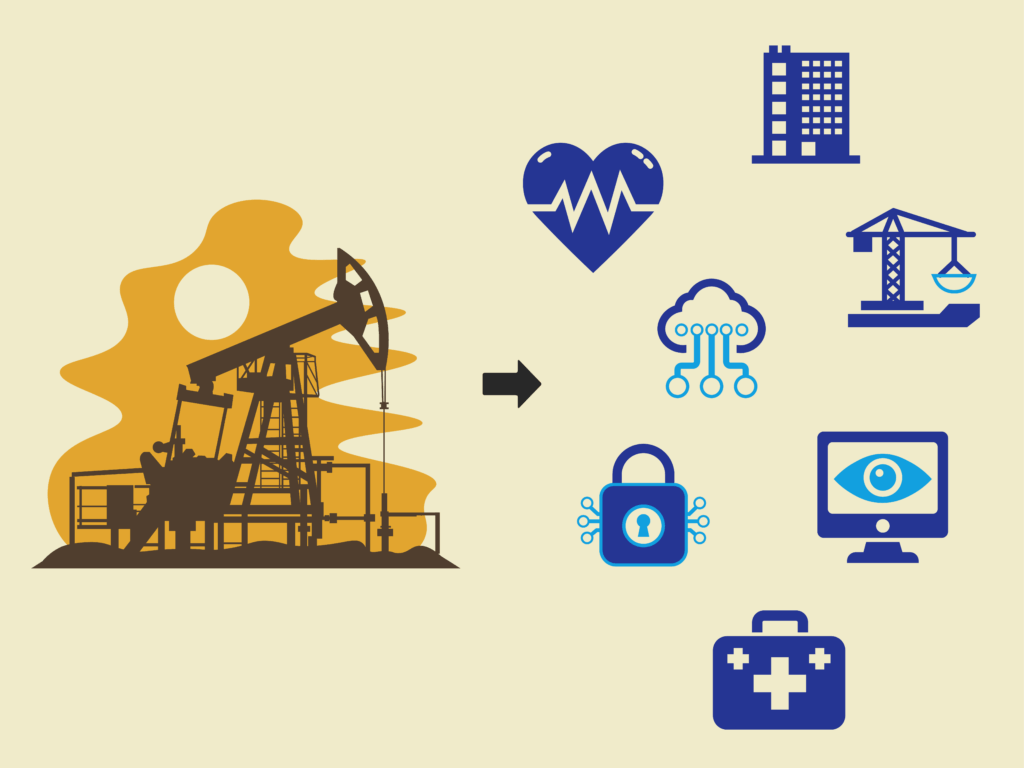
The Good Life Prevails

COVID-19 may have changed the way people worldwide are doing business, but Council members have stepped up to the plate—or the tee to be more accurate—to help their communities with determination and generosity.
Organizations that receive most of their donations and fundraising from golf events, regattas, dinners, and so on are financially struggling because of COVID-19 mandates. Nothing has been truer during this pandemic than the fact that every aspect of society and our economy has been affected by this virus. Gatherings have been restricted in numbers of attendees (depending on your state), and meet-ups have been relegated to Zoom or Microsoft Teams. Fundraising events have been canceled, and the ability of charities to find donors has been limited.
But, always up to a challenge, broker members of The Council of Insurance Agents & Brokers are employing innovative ways to continue their philanthropic efforts. Capitalizing on strong relationships with donors and local businesses and their history of philanthropy, Council members continue to provide financial assistance where it’s desperately needed. Whether it’s socially distanced golf tournaments, live online auctions, or newsletters encouraging people to support their favorite charity, the good life continues.
A Legacy of Good
This year marks what would have been the 16th J. Smith Lanier Golf Classic and is the first time the tournament has had to be canceled. But COVID-19 is not shutting down the firm’s commitment to the Pediatric Brain Tumor Foundation (PBTF), the traditional recipient of grants from the event. Though the golf and reception will have to wait until next year, the live auction will be held—virtually—September 24 (www.pbtfcharityclassic.com). And the sponsors are key.

To their credit, sponsors who signed on for the initial event didn’t bail out when plans had to be changed. They are still helping to fund the auction, which benefits the Butterfly Fund within the PBTF.
“Our sponsors are the insurance companies. Without them, we couldn’t do this,” says Peter Krause, Marsh & McLennan Agency Southeast president and CEO (JSL joined MMA and operates as its Southeast hub). “Normally, we have an event the night before with an auction where we raise the money, then the next day we go play golf.
“This year we had make some changes, and we let our sponsors know that we couldn’t have the event. They are really supporting us and coming through with funding even without the benefit of the exposure they’d get in normal times.”
Krause says Gaines Lanier was initially drawn to the PBTF and the Butterfly Fund because he saw a direct way to support these children and their families, and Krause says now more than ever these kinds of groups need our help.
“These families are really, really stretched. The money we raise doesn’t go to research and development; it goes right to the families to pay a utility bill or gas or whatever they need,” Krause says. “Our goal is to hit our budget, $225,000 net. We are already halfway there, and I’m optimistic we can hit that number.”
In Illinois, Mike Pesch, president of the Midwest region at Gallagher, and Mitchell Andrews, partner at Plexus Groupe, got involved with the American Cancer Society to help sponsor the Chicago Select Golf Invitational because of their personal connections to the disease as well as their desire to help find a cure. This will be the 25th year of the golf tournament, which will go on, COVID or not.

“I got involved about eight or nine years ago for three basic reasons, and it was the right move,” Pesch says. “One, the tournament is so well run top to bottom, and we always get great feedback. Of course, two, golf is an essential part of our industry, so it was a good fit. The third reason is more personal. My nephew was diagnosed with a rare form of cancer. He’s been cancer free for about six years, but when I got involved, we didn’t know that would be the result.”
Being well run and having a successful history have made a big difference this year.
“We started advertising last year,” Andrews says. “We were well on our way in gathering participants. We usually have about 300 golfers, 64 foursomes. So this is a well-oiled machine.”
But once March came around and the shutdowns started, participants began asking what the plan was, and whether the event would go on or be canceled. The American Cancer Society, Medinah Country Club (the host), and the sponsors decided to delay the event, figuring that, by the time of the tournament on September 1, the world would know more about the virus and the dos and don’ts surrounding it.
“Those last foursomes were becoming a little more challenging since corporations had paused their budgets or canceled them for events like this. So we appealed to them about how ACS really needs funding now more than ever,” Pesch says. The American Cancer Society has reported that COVID-19 could reduce donations and funding by 50% should current trends continue—and it is not the only organization seeing massive declines.
Support Needed Now More Than Usual
According to an AFP survey done in May, more than 850 fundraisers say donations have dropped in 2020 compared to 2019. The lapse in funding does not come as a surprise, but it does spotlight the importance of corporate and individual support during this time.
Not all events have been able to pivot the way the Chicago Select Golf Invitational did, but Council members remain undeterred in their philanthropic efforts.
For example, Baltimore-based RCM&D had to cancel its annual regatta, which fundraises for grants that go to regional organizations. But it is not leaving its recipients high and dry. Typically, the regatta benefits four or five charities each year out of a pool of about 50 candidates, but this year—knowing there would be no big cashflow from the regatta—RCM&D created a newsletter advocating for all of the organizations that applied for the 2020 grant.
“We highlight their mission and how they are adapting to COVID. That allows our readers to individually be informed on what these organizations are doing and how donors can support them,” says Katie Caple, vice president of outreach at RCM&D.
Caple also notes that the relationships between RCM&D, the sponsors, and the grant recipients are long-term. She says that, once an organization gets involved with RCM&D, the interaction continues through the years, with employees using their volunteer hours to serve these groups long after their regatta grant year.

“Our culture remains the same—we want to support the community and be involved in any way we can. What has changed is how we can go about that,” Caple says. “As an example, there’s an organization we support that helps with adoption. This year, since we couldn’t volunteer in person, we hosted a webinar for their clients on financial planning.”
Even without the regatta, RCM&D is providing some funding, and it’s confident sponsors will stick with the event in the future. “Anybody who committed for 2020 will be rolled into 2021,” Caple says. “The level this year won’t be the same, but we are maintaining some level of funding even without the big corporate sponsorship.”
Are Things Forever Changed?
With the increased sensitivity to COVID-19, some organizations may have real concerns over in-person events.
Krause notes, for instance, that the J. Smith Lanier Pediatric Brain Tumor Foundation event has special considerations. “Especially with PBTF there are children who have health vulnerabilities. We’ll have to be creative, because these organizations really depend on us.”
As far as the permanence of the changes to fundraising, Andrews exemplifies the tenacity of the industry’s most determined philanthropists. “The world will always have viruses; it will always have disease. It’s how we respond to them. It’s about how we react to what is going on. The virus is not something that’s in our control. What is in our control is continuing to get the message out and making sure we create an environment where donors can contribute.”
Pesch says it’s important to keep going to sponsors for support. “You can’t ask too many times—the only time the needle gets moved is if someone reaches out with a request for funds. I’m not saying badgering, but don’t put aside the ask.”
“We’re not giving up, nor should you,” Andrews says. “Could you donate hotels, your vacation home, or air miles for our auction? If your corporation has a policy of no corporate events, maybe you can donate something you now can’t use.”
In the end, it’s the industry’s thing, Andrews says.
“It’s called relationships, people who care and look out for one another.”
Ellie Tallarida is rising senior (fifth year) at Northeastern University and a 2020 summer intern at The Council.




